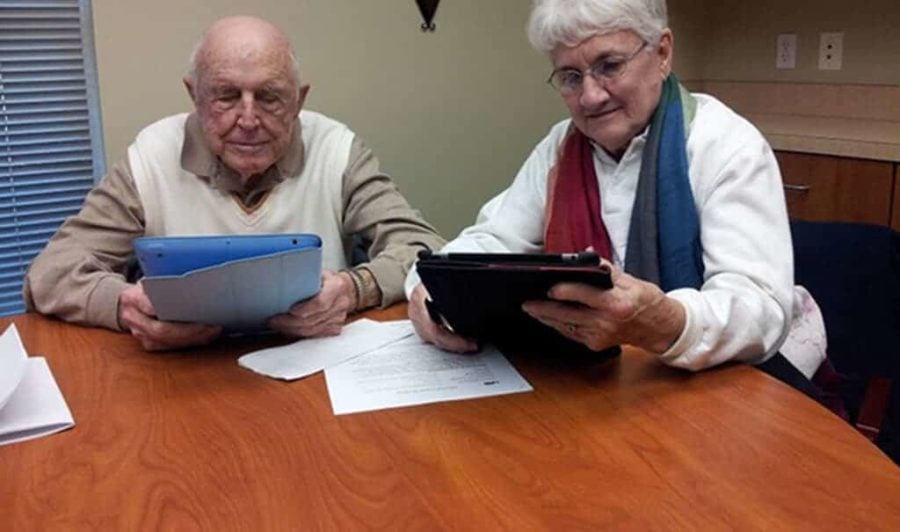One way to help the elderly cross what’s known as the “digital divide” is the use of tablets, those smaller, lighter, easy-to-use computers that seem to be taking the place of laptops.
New Michigan State University research has found that the use of tablets does make it easier, breaking down some of the barriers that keep seniors from getting connected.
In addition to being smaller, lighter and more portable, tablets allow people to maneuver online without having to move and click a mouse.
“The dexterity required to control a mouse is really hard for some older adults,” said Shelia Cotten, an MSU professor of media and information who led the research. “A certain level of muscle control is needed. And some older adults have shaking issues, in addition to muscle-control issues in their hands and arms.”
Cotten also said that in most cases, tablets are just easier to use, especially for people who don’t have a lot of computer experience.
“For the most part they are pretty easy to operate,” she said. “You don’t have to click on 12 different things to do what you want to do. It helps to ease their tech anxiety.”
The researchers also found that when an elderly person’s family recommended a certain type of tablet and helped them learn how to use it, that contributed to their computer-use confidence as well. They learned how to use tablets by watching others use them and also by playing around on the tablets themselves.
It’s a fact that getting online can help the elderly feel more connected to family and friends, as well as providing them with useful information.
“For example, it allows them to be more proactive in their health care,” Cotten said. “They have access to health information, electronic medical records and so on.”
Last year, Cotten and colleagues published research that found Internet use among the elderly can help ward off depression.
“It’s all about older persons being able to communicate, to stay in contact with their social networks and just not feel lonely,” she said.”
Cotten said tablets will be increasingly used by older adults, noting the recent announcement of collaboration between Apple, IBM and Japan Post to disseminate 5 million tailored iPads to older adults in Japan.
This recent research, published in the journal Educational Gerontology, was funded by the National Institute on Aging. For a copy of the paper, visithttp://www.sciencedirect.com/science/article/pii/S0747563215000606



For me, the biggest irony of the digital divide is that its literally 1″ wide. You just have to be willing to go that extra inch to get across it. But when it comes to senior citizens, that inch is the scariest thing on the planet. And many will not go across, no matter how much you try to show them how easy it is.
I got my Gramma a tablet, I showed her how to touch things, slide and move around on it. My gramma has ALL of her mental faculties, but when presented with the same tablet on the following day, she refuses to remember how to use it. She wants me to show her EVERY time I turn it on. After a few times, I told her to just play with it and keep touching the screen and see what happens, and she’ll be able to figure it out. She then looks at the screen, frowns, turns the unit off and puts it down.
I have done tech support for thousands of people over the last 20 years. My job prior to my current employment was for a company that makes computers for Senior Citizens. I tried to get my grandma interested, but she just plain isn’t. But I can’t get my own grandma to use a tablet or computer. I would consider this a personal failing, if it weren’t for the fact that I realized long ago. If you are afraid of technology, a piece of tech that is a box with a single button on it is terrifying. I know that seems silly to younger generations. Add to that multi-style button presses for a single button, and they are totally confused.. “Do I just push it? Hold it for three seconds and let go? Or hit the button twice?”
On top of that, she watches the news all the time, and is terrified of people getting her personal info or access to her bank through these devices. I have tried to explain some of the precautions one can use to avoid that situation, but it doesn’t matter. The fear is always present and incurable.